Accounting for Advances in the Music Industry

Types of Music Advances
A music advance is an upfront payment offered to artists by record labels, publishers, or Performance Rights Organisations (PROs) against future earnings or royalties.
There are five main types of advances:
- Label Advances
- Publishing Advances
- Royalty Advances
- Performance Rights Organisations (PRO) Advances
- Private Advances
Label Advances
These are typically offered to recording artists as part of their contract with a record label. Such advances are deducted against future royalties, and sometimes various other revenue streams depending on your agreement. Artists will not receive additional income from their music until the label recoups the advance.
Publishing Advances
These are provided to songwriters as part of a publishing deal with a music publisher. They're recouped by the publisher before the songwriter receives any additional earnings from their songs.
Royalty Advances
These offer an alternative to traditional label or publishing advances, and they're typically independent of a specific label or publisher. They're based on the analysis of a musician's royalty statements and future performance.
PRO Advances
PROs (such as ASCAP, BMI, or SESAC) collect and distribute performance royalties on behalf of songwriters and composers. Artists will not start receiving earned royalties until the advance is fully recouped.
Private Advances
Private advance companies provide advances to songwriters based on their annual royalty income. These often come with high-interest rates and penalties for non-payment.
Royalty Rates and Percentage Advances
Royalty rates determine how much money artists get from their music.
Percentage advances are upfront payments based on expected future earnings.
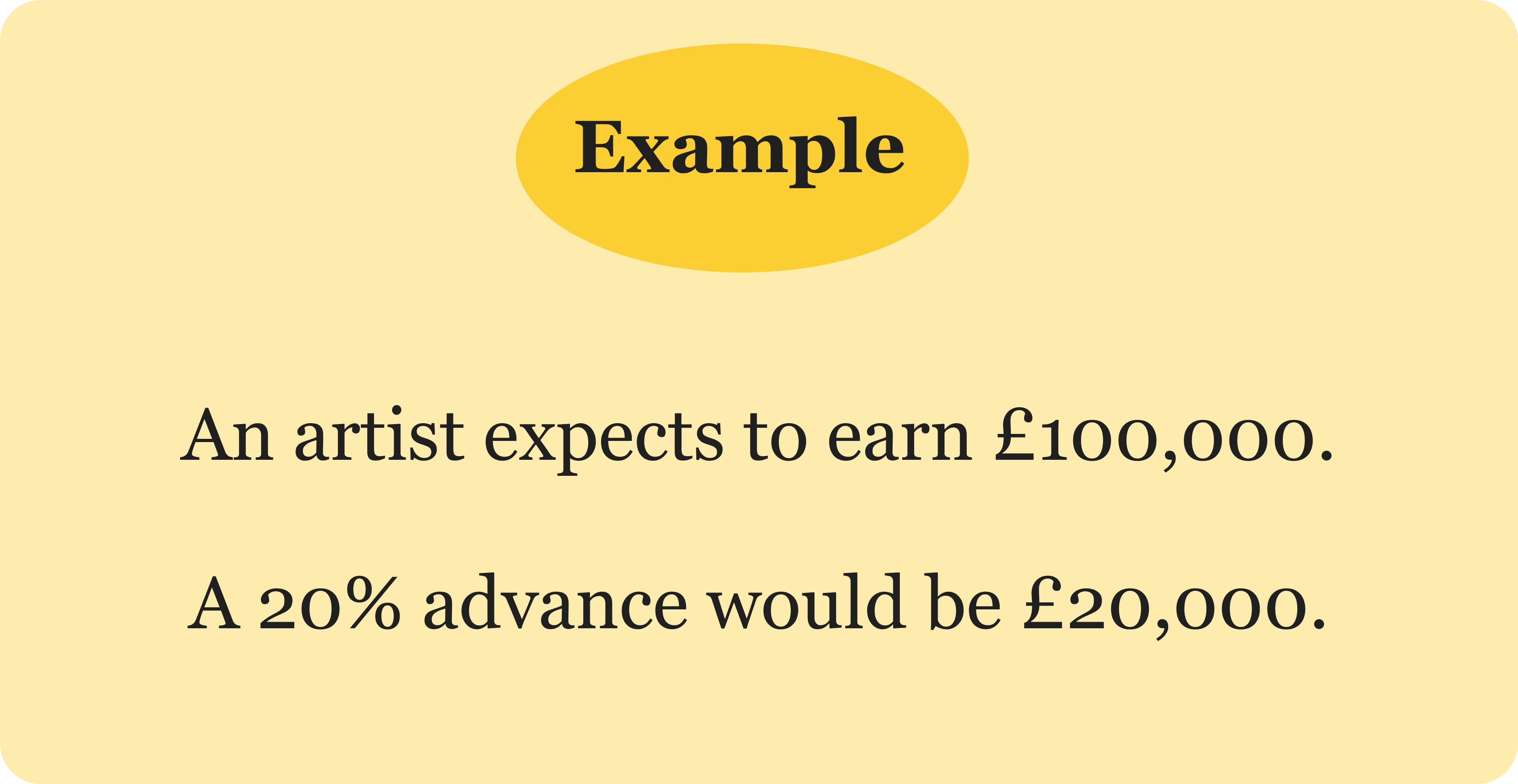
Advance Recoupment
An artist repays an advance by offsetting future earned royalties against the money advanced.
The advance provider recoups the advance by deducting it from the artist's share of revenue. As music earns revenue, advances are recouped, and artists then start earning extra money.
Accounting for an Advance
Advance are reconciled to an Advance Liability Account (Balance Sheet).
As you recoup the advance, related royalties are also reconciled to the Advance Liability Account.
The balance in this account equals how much is left to recoup.
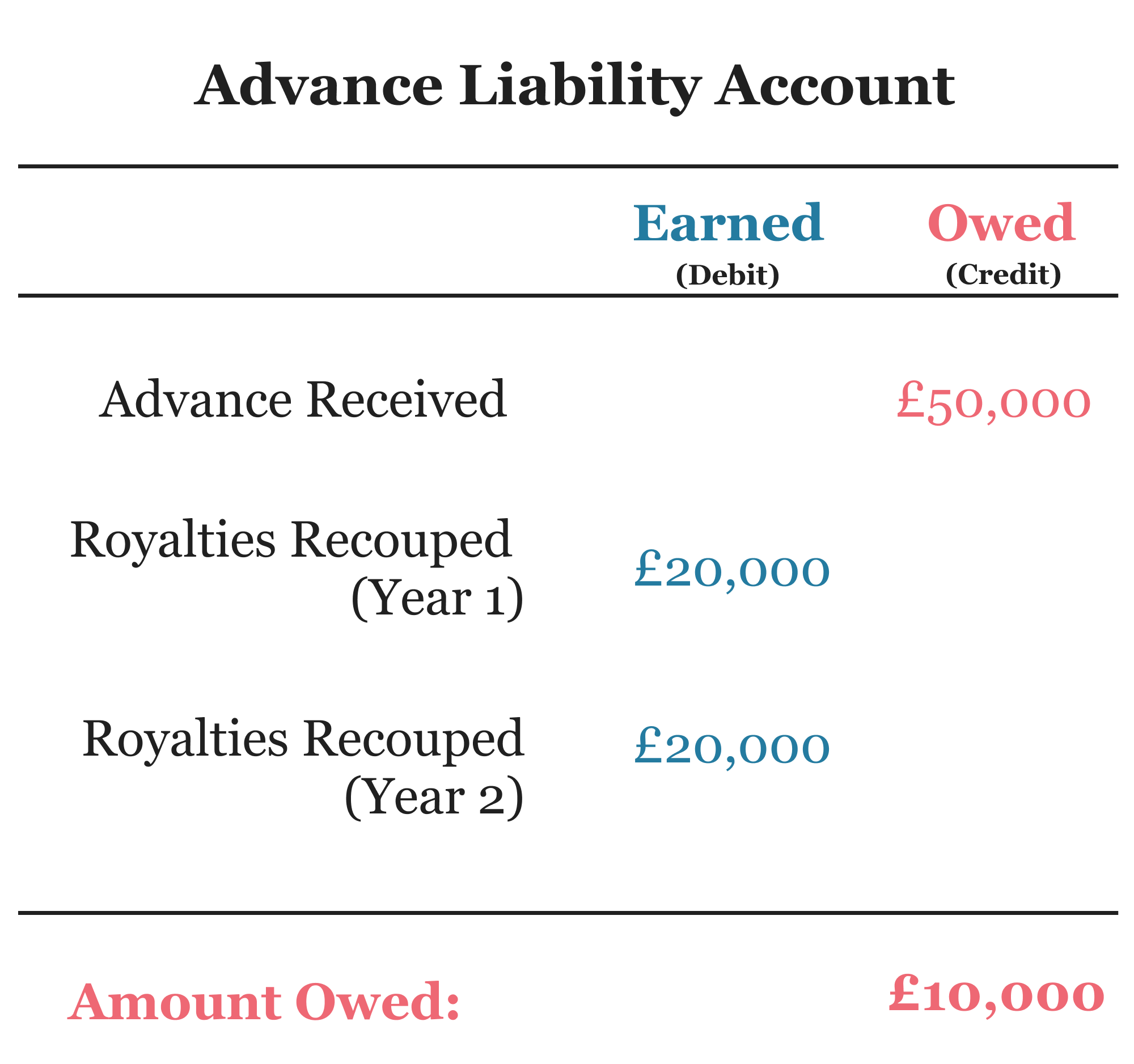
Unearned Advances
What happens when the value of royalties earned is less than the advance payment amount made to you by the licensee? Much depends on the agreement with your licensee.
If you continue to earn royalties, the amount owed will gradually decrease. And then if you exceed the advance, then any excess royalties will be subject to tax.
Or if the advance will not be recouped, you should reduce the remaining liability and recognise the difference as income.
Recoupment Period
The amount of time that you're expected to take to recoup the full advance is known as the recoupment period. Sometimes, there is no recoupment period.
Recoupment periods can vary widely - based on your contract terms.
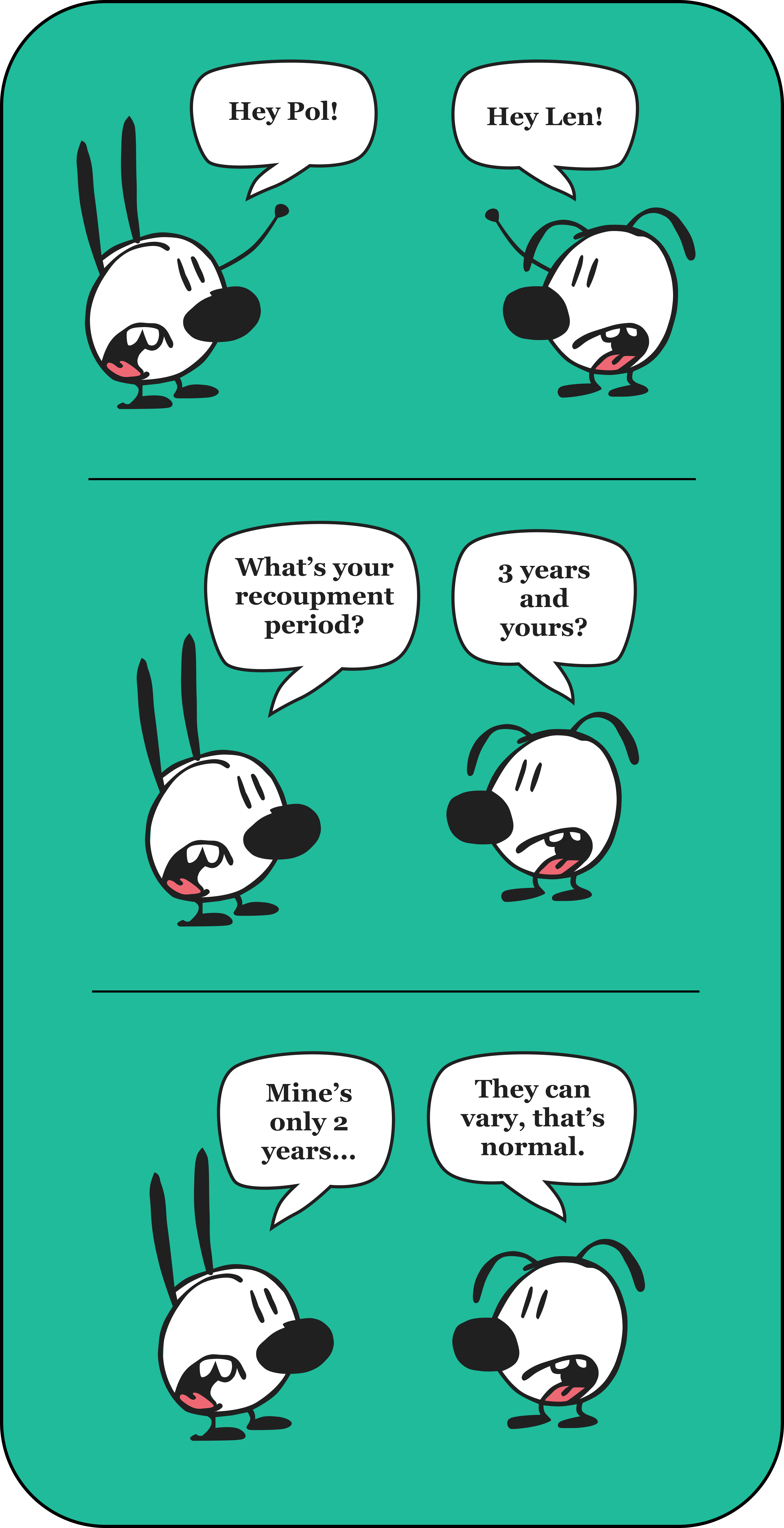
Pros and Cons of Advances for Artists and Labels
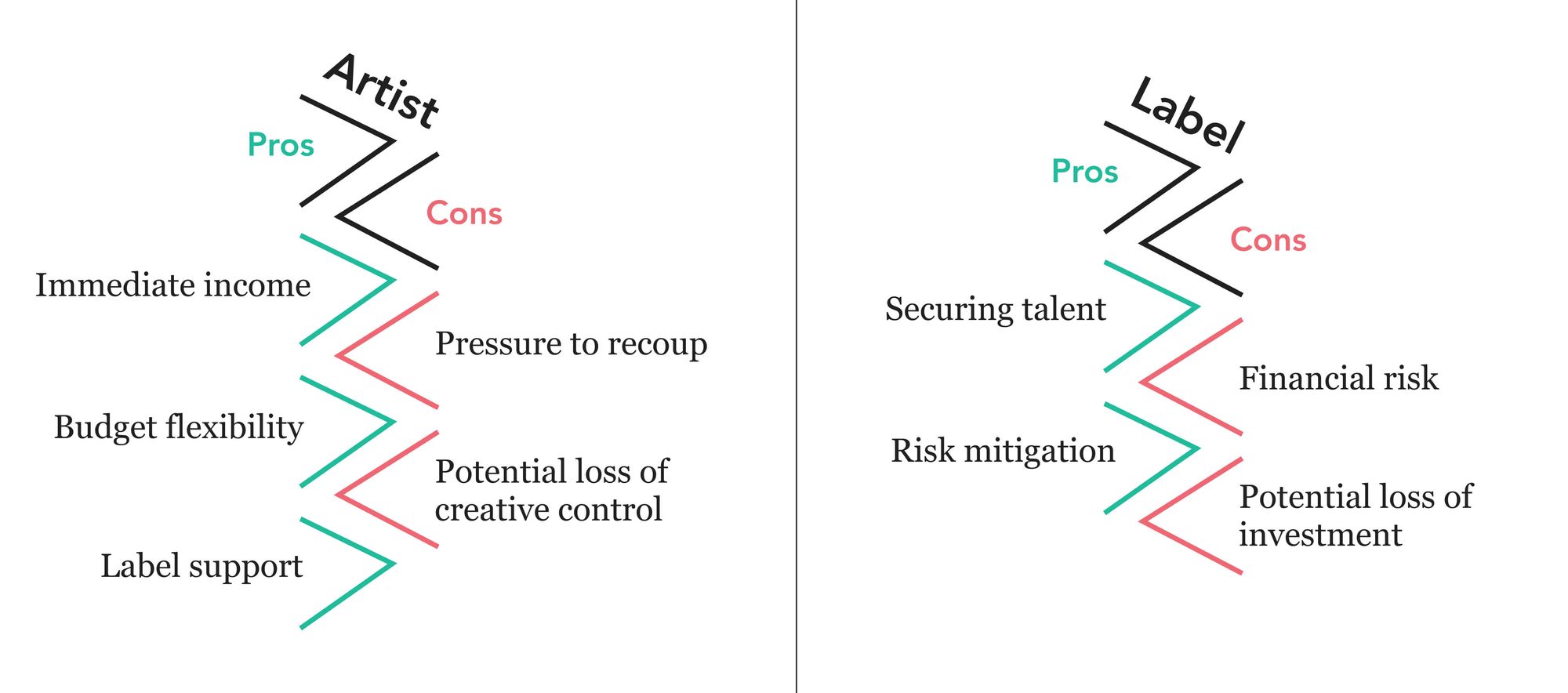
Corporation Tax
In the UK company profits are taxed at 19-26% depending on the size of the business.
Advances count as revenue so you’ll effectively pay corporation tax on your advances less your expenses. However, the advance may be spread out over time which can significantly affect when you pay tax.
How you pay corporation tax depends on your approach to accounting:
- Sole-traders typically use the cash accounting scheme.
- Companies use the accrual accounting scheme.
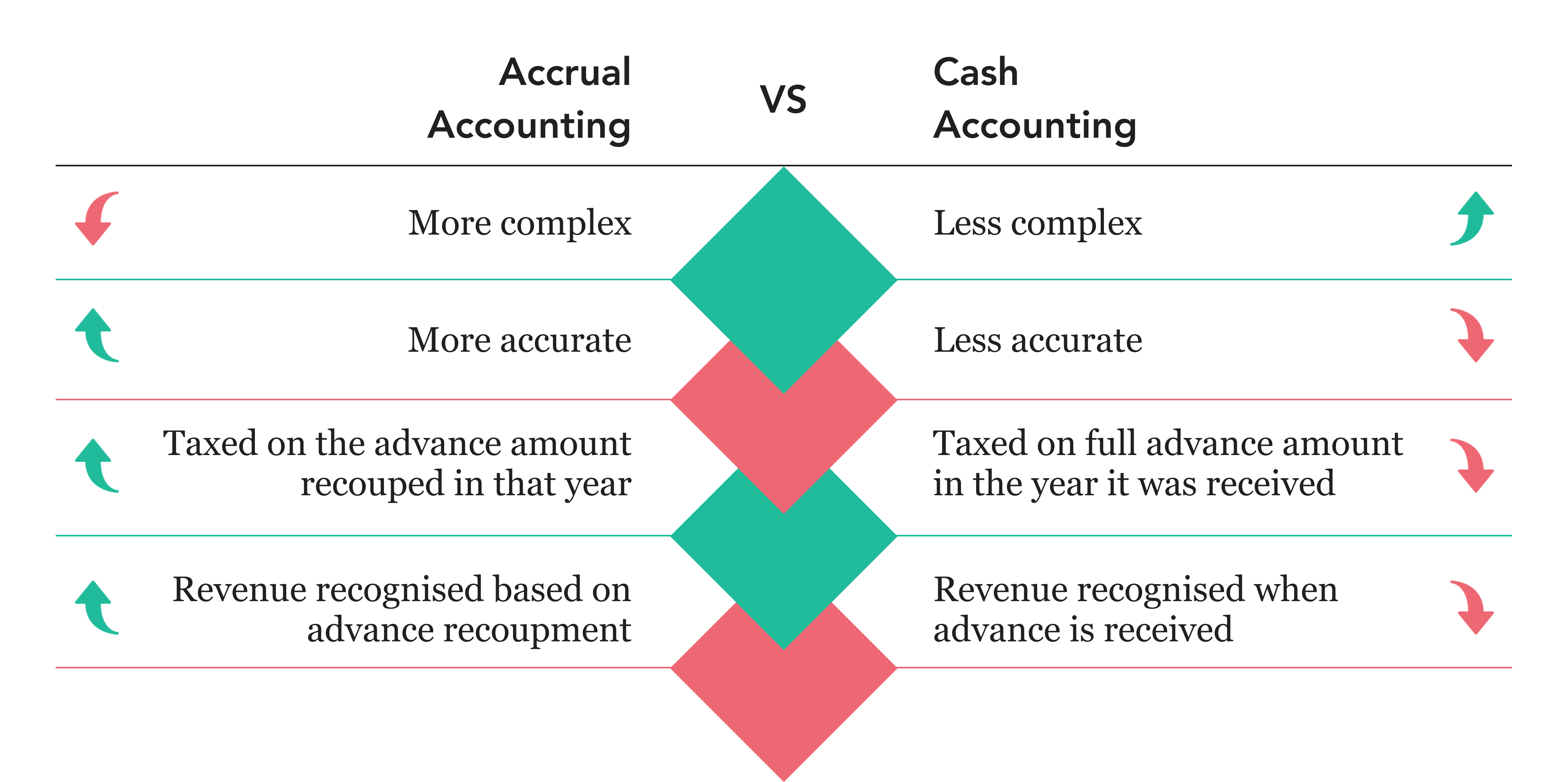
Cash Accounting
Revenue (including advances) is recognised when cash is physically received.
For example:
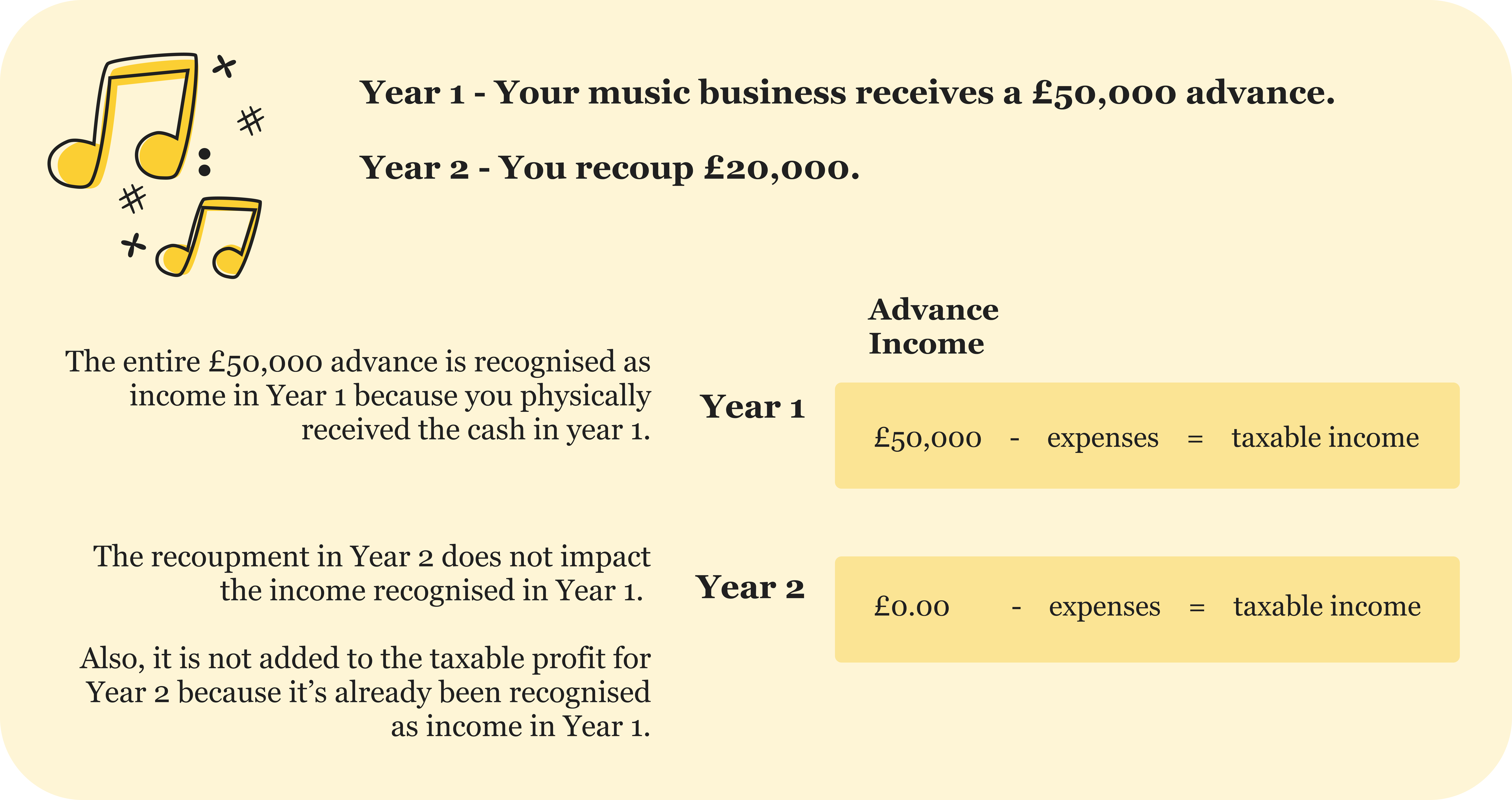
Accrual Accounting Scheme
Revenue (including advances) is recognised when it is earned, regardless of when the cash is received.
For example:
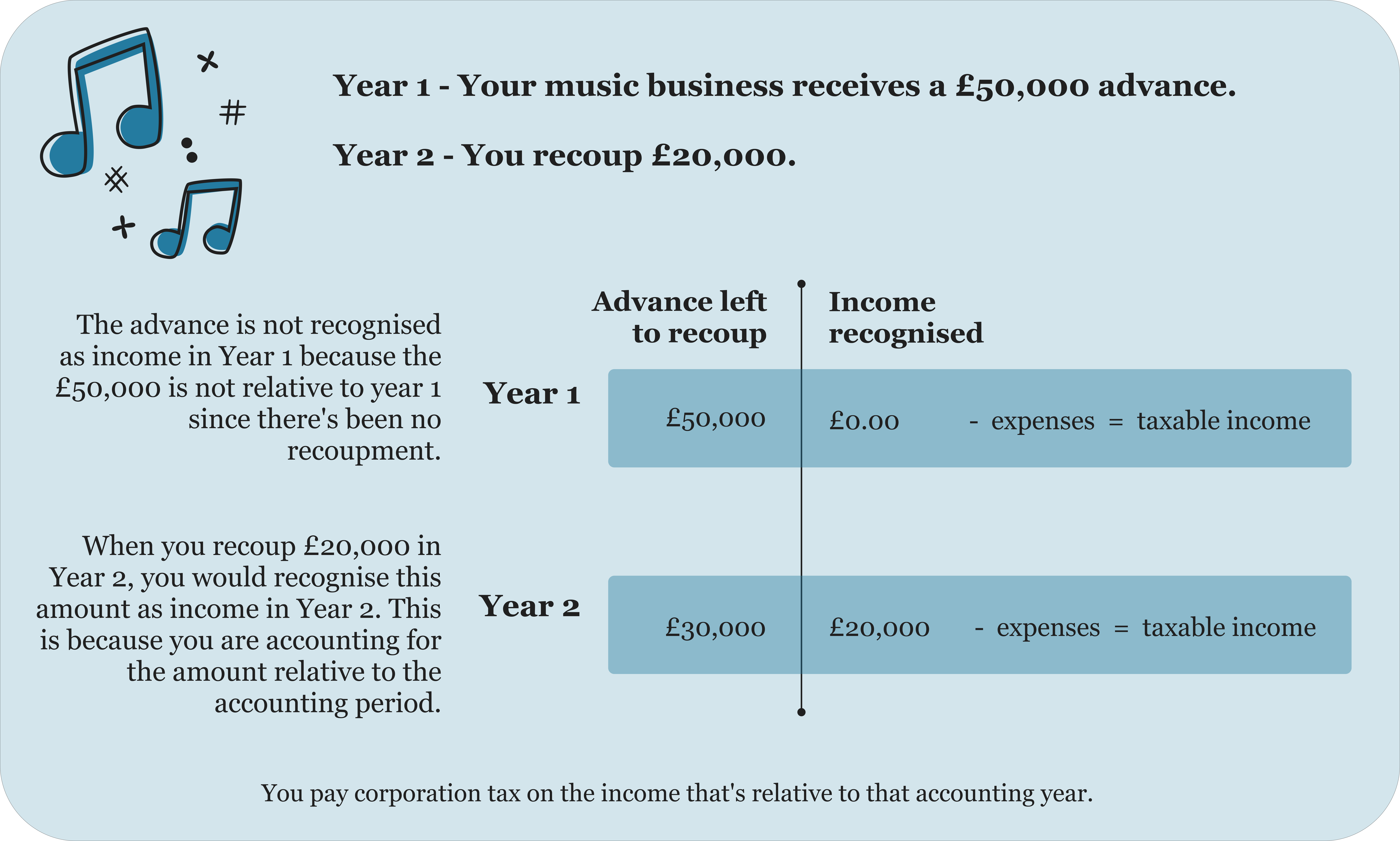
As a result, accrual accounting is usually the best choice for an artist that receives an advance.
Managing an Advance as an Artist
We can't tell you how to spend your money, but here are some useful tips.
Consider where to spend the advance. For example your advance will be spent on music production, ads, tours, and everyday needs.
Remember that advances are recouped from music earnings (such as through royalties) so it's risky to only rely on an advance as your sole source of income.
Consider other ways to make money from your talents. Until the advance is fully paid back, you might not earn any extra money from your music.
Here's a helpful article when considering signing to a music label.
How can Numble help me with my advance?
A good small business music accountant can help you to understand your advance.
If you decide to work with Numble, we’ll handle the accounting side of your advance for you, we'll answer any queries you have, and we'll teach you what you want to know.
If you have any questions, feel free to book a call or get an online quote:

